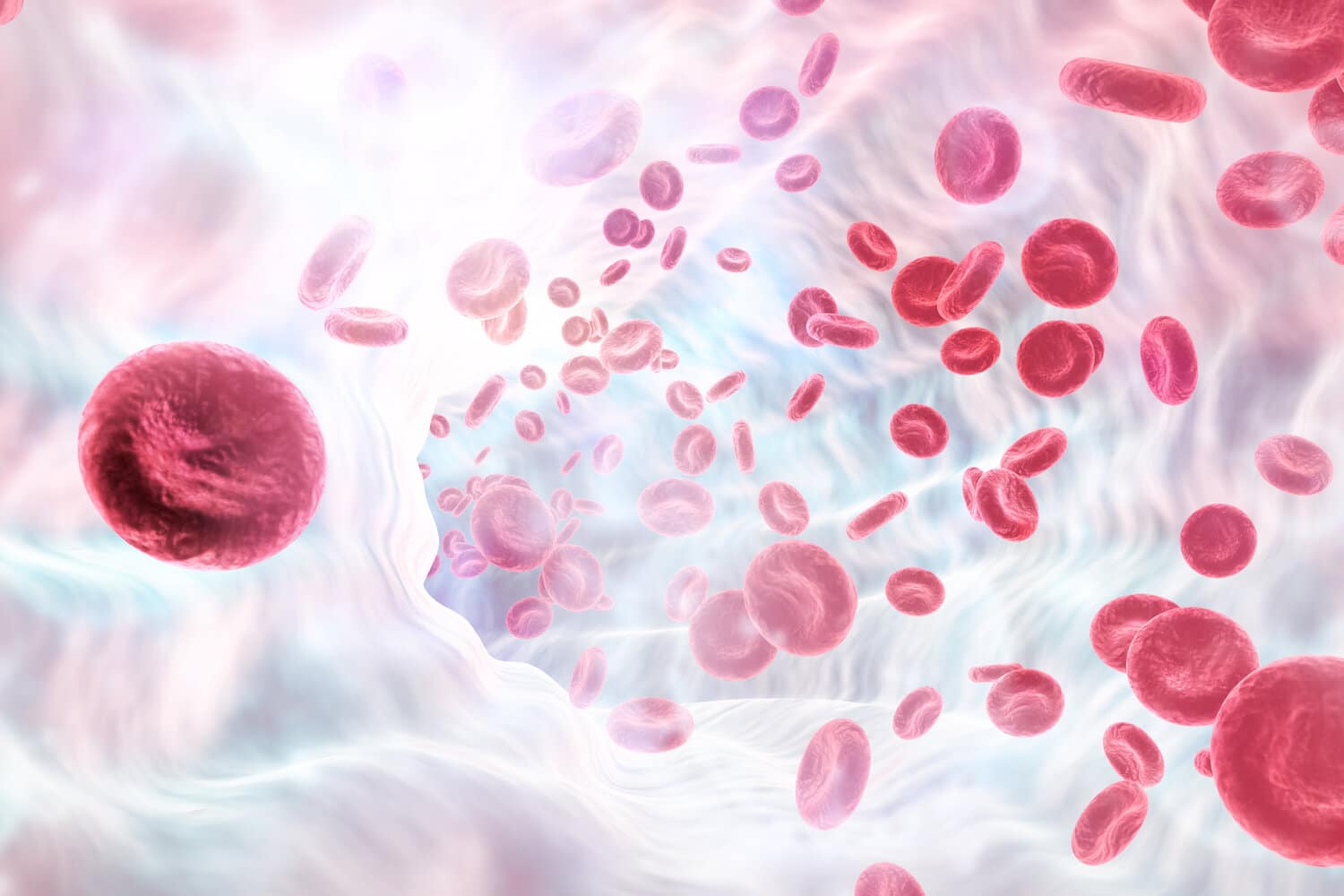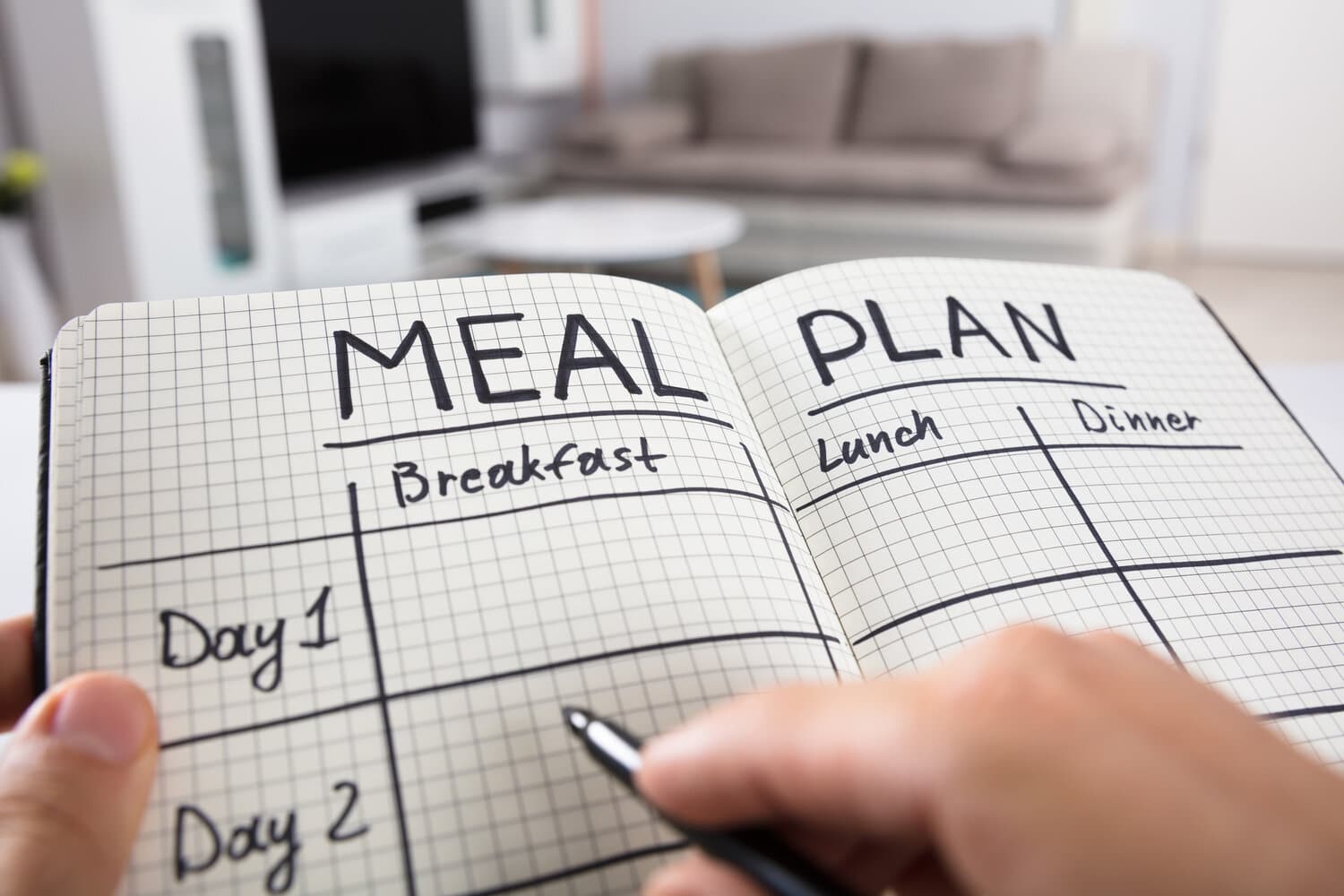I have been getting this question a lot lately.
Some weight-loss gurus claim that eating many small meals throughout the day will boost your metabolism and aid in weight loss.
Some claim that it will help balance blood sugar.
On the flip side, others claim that time-restricted feeding, skipping meals, and fasting is better for weight loss.
So, what’s the deal?
First, there is no strong evidence that eating more frequent meals (6 small meals/day) aids in weight loss.

Studies done on the matter found that it was MORE ABOUT THE NUMBER OF CALORIES EATEN than about how many times a day the participants ate. There was no significant difference in the amount of weight loss between the 2 groups (3 meals/day VS 6 meals/day). (1,2)
There is also no evidence that eating frequent meals will “increase your metabolism”.
From a biochemical perspective, it makes sense that eating LESS frequently during the day would aid in weight loss and blood sugar regulation.
This is because when you eat often your body is more frequently in what is called the “fed state”. In the fed state your body is producing insulin and BODY-FAT BURNING IS DOWN-REGULATED DRAMATICALLY.
Obviously, we need to burn lots of body-fat in order to lose weight.
In a person with a healthy digestive system and normal blood sugar control, you would be in the “fed state” for about 3 hours after a meal.
After that, your insulin levels decrease and insulin’s sister hormone, glucagon, increases. Glucagon does the opposite of insulin and it actually turns on body-fat burning (definitely a plus when trying to lose weight).
So you can see how giving at least 4-6 hours between meals without snacking can facilitate body-fat loss.
Of course, there are exceptions to this and if you are used to eating frequently throughout the day, it may take weeks to months for you to slowly adjust to fewer meals/snacks.
There is some evidence that this does help with weight loss. Here is a quote from one study that looked at this. (3)
Our results suggest that in relatively healthy adults, eating less frequently, no snacking, consuming breakfast, and eating the largest meal in the morning may be effective methods for preventing long-term weight gain. Eating breakfast and lunch 5-6 h apart and making the overnight fast last 18-19 h may be a useful practical strategy.
— Kahleova H, Lloren JI, Mashchak A, Hill M,
Fraser GE. Meal Frequency and
Timing Are Associated with
Changes in Body Mass Index in
Adventist Health Study 2. J
Nutr. 2017 Sep;147(9):1722-1728.
doi: 10.3945/jn.116.244749. Epub 2017
Jul 12. PMID: 28701389; PMCID: PMC5572489.
So, it looks like for healthy people eating less frequently may be more beneficial for weight loss.
But what about people with poor blood sugar control?
A few short-term small studies have shown that increasing meal frequency for people with poor blood sugar control improved one measurement of blood sugar, but did not improve other important tests. What improved was oral-glucose tolerance after a meal, but what did not improve was insulin sensitivity or hemoglobin A1C. Hemoglobin A1C is a long-term indicator of blood sugar control. (4,5)

But one long-term study found that in adolescents with type 1 diabetes frequent meals led to higher levels of hemoglobin a1c. (6)
And another study found that rather than 6 meals/day, 3 meals a day led “to weight loss and a significant reduction in HbA1c, appetite, and overall glycemia, with a decrease in daily insulin.” (7)
It looks like the jury is still out in terms of outright benefits for blood sugar control from eating more or fewer meals in the day.
But I still go back to basic biochemistry.
Eating no more than 3 meals per day allows the body ample time to burn fat.
One of the biggest issues with blood sugar dysregulation is just that; dysregulation.
So, the answer to that dysfunction and dysregulation is most likely NOT to just provide more frequent calories.
That is like saying, “I broke my foot and now I have to walk with crutches for the rest of my life, I really shouldn’t use that foot…it’s broken”.
If you were to do that you would only be making the foot less functional over time.
And that’s what happens when you try to fix the problem by further reducing the use of the system and relying on food coming in more frequently.
The answer to winning back adaptable, efficient, and effective blood sugar regulation is by “retraining” the body to do it on its own.
This means really that you are forcing the body to up-regulate the production of certain key enzymes that were “not needed” as much when you were eating all day.
Those are key enzymes for breaking down and burning fat for fuel.
The body is particularly concerned with energy conservation so if you don’t use it, you lose it.
When you eat meals rich in protein, fat, and fiber (slow-burning fuels), stretch out the time in between meals, eat meals that are a little lower in carbs, and be physically active, you are now retraining your body to be an efficient fat-burner for fuel!
Also, of note is that consistent eating patterns from day to day and eating fewer calories at night (than in the morning or at lunch) appear to be major factors in facilitating weight loss. (3,8)
The thing about this whole conversation is that we are not all the same and we really need to pay attention to our bodies.
But I do suggest trying the following:

- Eat 3 meals per day
- Load more calories toward the morning and midday rather than in the evening
- Stop eating after dinner
- Try to eat at consistent times from day to day
- Be sure to include enough protein, fat, and fiber into each meal for longer satiation
- Avoid snacking unless absolutely necessary
- If you are a frequent snacker, experiment with less frequent snacks and see how it goes. If it is extremely uncomfortable for you, it may not be the best approach. But remember that you may just need to adapt and that takes time. Hunger will not hurt you but if you feel shaky, lightheaded, irritable, or some other discomfort other than hunger it means you will need to work more slowly.
- Drink plenty of water throughout the day
The key is to pay attention to your body and the results you are getting over time.
One of my favorite quotes is “Do what works, stop doing what doesn’t”
References
- Cameron JD, Cyr MJ, Doucet E. Increased meal frequency does not promote greater weight loss in subjects who were prescribed an 8-week equi-energetic energy-restricted diet. Br J Nutr. 2010 Apr;103(8):1098-101. doi: 10.1017/S0007114509992984. Epub 2009 Nov 30. PMID: 19943985.
- Alencar MK, Beam JR, McCormick JJ, White AC, Salgado RM, Kravitz LR, Mermier CM, Gibson AL, Conn CA, Kolkmeyer D, Ferraro RT, Kerksick CM. Increased meal frequency attenuates fat-free mass losses and some markers of health status with a portion-controlled weight loss diet. Nutr Res. 2015 May;35(5):375-83. doi: 10.1016/j.nutres.2015.03.003. Epub 2015 Mar 17. PMID: 25862614.
- Kahleova H, Lloren JI, Mashchak A, Hill M, Fraser GE. Meal Frequency and Timing Are Associated with Changes in Body Mass Index in Adventist Health Study 2. J Nutr. 2017 Sep;147(9):1722-1728. doi: 10.3945/jn.116.244749. Epub 2017 Jul 12. PMID: 28701389; PMCID: PMC5572489.
- Papakonstantinou E, Kontogianni MD, Mitrou P, Magriplis E, Vassiliadi D, Nomikos T, Lambadiari V, Georgousopoulou E, Dimitriadis G. Effects of 6 vs 3 eucaloric meal patterns on glycaemic control and satiety in people with impaired glucose tolerance or overt type 2 diabetes: A randomized trial. Diabetes Metab. 2018 Jun;44(3):226-234. doi: 10.1016/j.diabet.2018.03.008. Epub 2018 Apr 6. PMID: 29680359.
- Papakonstantinou E, Kechribari I, Mitrou P, Trakakis E, Vassiliadi D, Georgousopoulou E, Zampelas A, Kontogianni MD, Dimitriadis G. Effect of meal frequency on glucose and insulin levels in women with polycystic ovary syndrome: a randomised trial. Eur J Clin Nutr. 2016 May;70(5):588-94. doi: 10.1038/ejcn.2015.225. Epub 2016 Feb 10. Erratum in: Eur J Clin Nutr. 2016 May;70(5):646. PMID: 26862008.
- Li C, D’Agostino RB Jr, Dabelea D, Liese AD, Mayer-Davis EJ, Pate R, Merchant AT. Longitudinal association between eating frequency and hemoglobin A1c and serum lipids in diabetes in the SEARCH for Diabetes in Youth study. Pediatr Diabetes. 2018 Apr 30:10.1111/pedi.12690. doi: 10.1111/pedi.12690. Epub ahead of print. PMID: 29708292; PMCID: PMC6207475.
- Jakubowicz D, Landau Z, Tsameret S, Wainstein J, Raz I, Ahren B, Chapnik N, Barnea M, Ganz T, Menaged M, Mor N, Bar-Dayan Y, Froy O. Reduction in Glycated Hemoglobin and Daily Insulin Dose Alongside Circadian Clock Upregulation in Patients With Type 2 Diabetes Consuming a Three-Meal Diet: A Randomized Clinical Trial. Diabetes Care. 2019 Dec;42(12):2171-2180. doi: 10.2337/dc19-1142. Epub 2019 Sep 23. PMID: 31548244.
- Ha K, Song Y. Associations of Meal Timing and Frequency with Obesity and Metabolic Syndrome among Korean Adults. Nutrients. 2019 Oct 13;11(10):2437. doi: 10.3390/nu11102437. PMID: 31614924; PMCID: PMC6836094.
